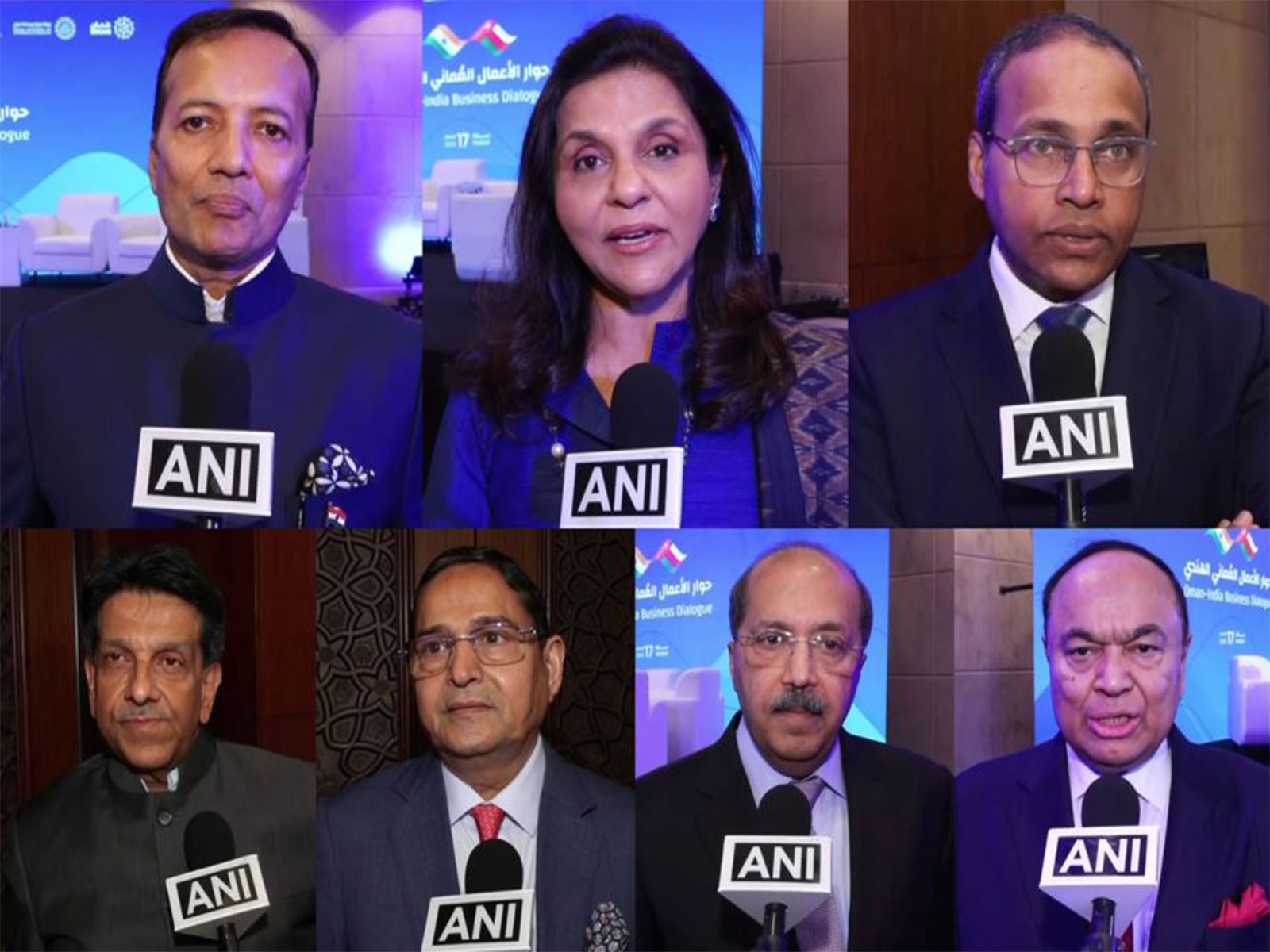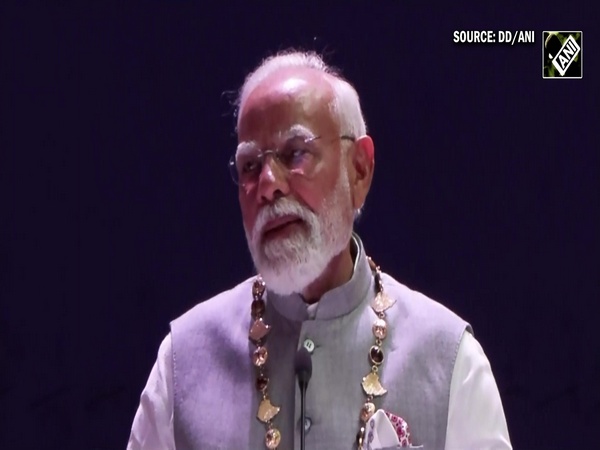Is India getting bullied by Singapore in accepting Gift City truce?
Aug 28, 2020

New Delhi [India] Aug 28 (ANI/Digpu): Singapore has over the years emerged as a top International Finance Centre (IFC) and the Singapore Exchange (SGX) has found a successful niche in licensing of indices from other jurisdictions such as China, India, Indonesia, Japan, Taiwan, Malaysia, Thailand, Korea, Australia, New Zealand, Philippines, etc. and creating deep and liquid index derivatives markets.
Besides having created a deep and liquid market in India based index and related products, Singapore also is a global foreign currency hub of the India Rupee based contracts through the NDF and SGX markets.
To counter this unabated export of Indian products to such international financial centres, India has established its own IFSC at GIFT City, Gandhinagar to develop an international financial centre in India, rivalling the likes of Singapore and Hong Kong.
It aims to have a prime position in Asia and emerge as a financial centre of choice for global participants. Eventually, GIFT city should become a vehicle or a place for investments across the world into India like Hong Kong has acted for China in the last 30 or 40 years as envisioned by our Prime Minister.
Additionally, skilled manpower is also expected to return to the onshore markets and numerous job opportunities created for our own people as foreign participants and intermediaries set up offices in GIFT IFSC.
Already, over the past few budgets, various tax incentives, exemptions, relaxations have been provided to create a level playing field for GIFT IFSC to compete with other IFC's.
An initiative which is being envisaged to build liquidity at GIFT IFSC is the proposed SGX - NSE International connect, which is a proposed collaboration between the NSE International Exchange (NSE International) and the SGX wherein SGX will provide order routing into NSE International and all the foreign financial intermediaries and participants will operate from Singapore with no visibility to NSE on the participants, rendering it as a permanent vassal under this arrangement.
The details of financial arrangements, operational and implementation issues are still not public, the collaboration it is believed remains subject to further approvals from authorities, including amendments to the Prevention of Money Laundering Laws, which would be a major concession to enable the project take off.
Incidentally, one of the big reasons for participants using SGX is the Omnibus account structure, wherein the details of end client of the beneficiary are not known to the Exchange and in many cases to its intermediaries, which poses a significant Money Laundering risk affecting our economic and national security.
Potentially, no trading member, clearing member, institutional investor of SGX, which are some of the marque names, would then be incentivized or find it worthwhile to ever set up a presence at GIFT IFSC, since they can easily access all IFSC products from Singapore, killing the potential of GIFT IFSC forever.
The settlements of trades would take place at SGX for those trades which are netted out and required to be settled between SGX members and other trades would be settled at the NSE International Clearing. In essence, SGX therefore would continue to retain its participants, order flows, settle trades, offer margin offsets, earn its fees, leaving no development of markets, creating an investor base at GIFT IFSC.
The collaboration seems to completely rely on order flows and business emanating from Singapore almost acknowledging that GIFT IFSC does not have any potential or standing of its own to generate business or trading volumes. This could have probable damaging consequences to the reputation of GIFT IFSC.
It also shows our continued reliance and dependency on an offshore venue, not only for volumes but also as the price setter for India based indices and exchange rates. This seems clearly contrary to the goals envisaged while setting up GIFT IFSC and erodes the importance of GIFT IFSC in the minds of international participants.
When all the efforts should be to develop a transparent, deep and liquid market in the India based products at GIFT IFSC, wouldn't such a link destroy the potential of GIFT IFSC to emerge as competition to Singapore, Hong Kong, Dubai, etc., by handing over our markets and volumes to Singapore?
The other issue which remains to be seen is whether investors would have an interest in the SGX - NSE connects, which brings in an additional set of rules, regulations, and processes to be followed.
Will it bring enough liquidity to GIFT IFSC, will it hamper the attractiveness of GIFT IFSC by keeping other potential participants away, since they would certainly notice the absence of large international names at GIFT IFSC?
Will it bring skilled financial sector manpower back to onshore markets? What would be the parameters on which the success of the venture be monitored and how much time given to the project to emerge successfully?
In case any potential damage to the reputation of GIST IFSC ensues, whether due to abuse of laws, lack of build-up of liquidity, lack of international institutional investors at GIFT IFSC, who would bear responsibility and can the reputation of GIFT IFSC be subsequently salvaged?
Clarity would also be required whether the SGX - NSE connect would be a one-off, case to case approval or would it be a general go-ahead for other exchanges at IFSC to also connect to international venues such as Korea, Taiwan, Dubai, Mauritius, etc.
While other countries such as Japan and China are implementing policies to bring back liquidity to their local markets from Singapore, would it be the right step for India to continue handing over the markets to Singapore and lose out on market participants?
Osaka bourse revamped its derivatives trading in 2016 by implementing new technology along with longer trading hours and reduced transaction costs with an objective to bring back Japanese index futures (NIKKEI 225 futures) trading from foreign bourses (SGX & CME) to home country.
China has also placed restrictions and disallowed certain indices like A 50 index option from being trading on the SGX and also getting HK to take exclusive licenses of MSCI indices preventing SGX from trading them any further.
In fact, China has created a connect model between their domestic and offshore markets within the same jurisdiction, through the Shanghai/Shenzhen - Hong Kong Stock Connect, to develop their own local and onshore markets.
In the long run, building deep and liquid local markets or a continued dependency and reliance on foreign markets needs to be well thought through for the success of IFSC.
Finally, when the policy aim of the government is being Aatmanirbhar (self-reliant), would be worthwhile to emerge as a strong, stable, independent Indian IFSC or become reliant on a competing International Finance Centre to get business?
This story is provided by Digpu. ANI will not be responsible in any way for the content of this article. (ANI/Digpu)




















